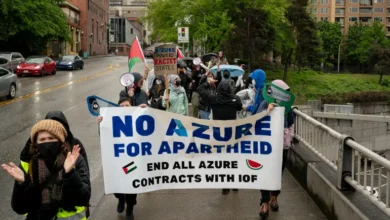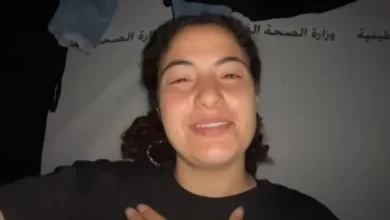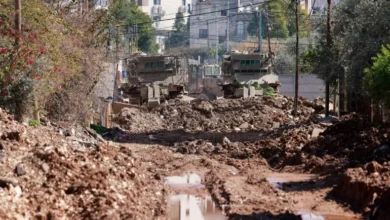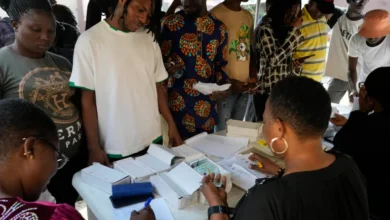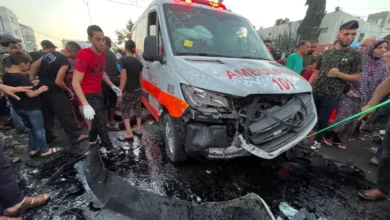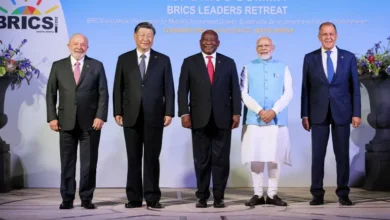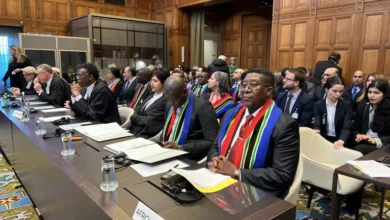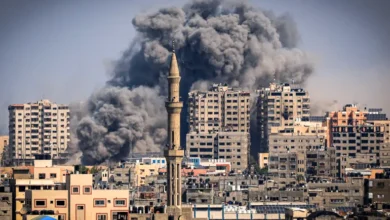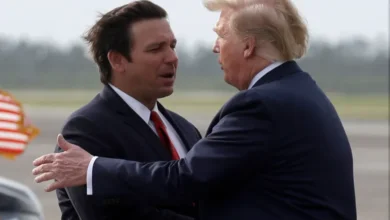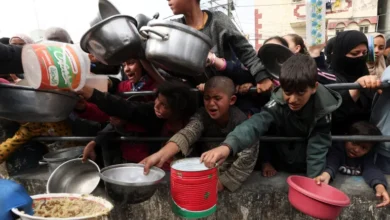In Bosnia, the past is disappearing and the future is bleak
Ehlimana Memišević
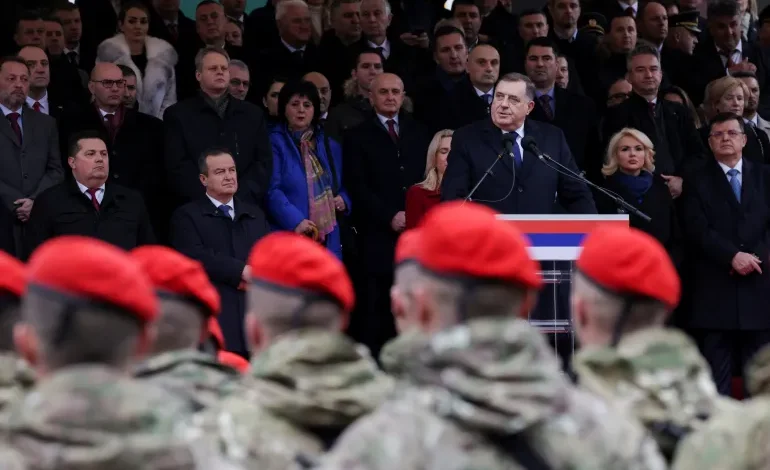
Ehlimana Memišević
On November 18, 2022, the remains of at least two people, killed during the 1992 massacres against Bosniak Muslims, were found and exhumed in my hometown of Višegrad, in eastern Bosnia and Herzegovina (BiH).
The news filled me with dread, but also hopeful anticipation. Could one of these victims be my father, who has been missing since 1992?
I have not always wished for the remains of my father to be found. Afraid that my family would not be able to live with the truth, I spent my whole childhood and most of my adult life hoping we never find out what exactly happened to him. What if we discovered that his last days were filled with unimaginable suffering? What if we learned that he was tortured, humiliated and burned to death like countless other Bosniak Muslims in Višegrad and other parts of eastern Bosnia? How would we go on living with that knowledge?
In recent years, however, I changed my mind. I now desperately want my father’s remains to be found. This is not because time dulled the pain – I am fast approaching his age when he disappeared (he was just 40), but deep down I am still a six-year-old longing for her father. I changed my mind because the genocidal violence that took him from us is now being celebrated regularly in our hometown and the rest of Republika Srpska. I am afraid that if my father’s remains are not soon found, those who are now trying to whitewash genocide will go on to deny he was ever killed or even existed.
The rewriting of our town’s violent history and denial of the crimes committed against us Bosniaks started long ago. Although the local Serb population witnessed the mass killings of Bosniak civilians, and despite numerous court judgements, countless testimonies of witnesses and survivors, admissions by many paramilitary soldiers, and the mass graves that are being unearthed in the area to this day, the majority of Visegrad’s Serb residents and government officials are denying murder, torture or rape ever took place there.
And in the past few years, the Serb population in my hometown moved from denying senseless bloodshed to openly and shamelessly celebrating it.
On January 9, 2023, for example, the fans of the Belgrade-based Serbian football club “Crvena Zvezda” celebrated the 31st anniversary of Republika Srpska’s founding with a bonfire on Višegrad’s infamous Mehmed Pasa Sokolovic’s bridge, where countless Bosniak Muslims were killed by Serbs. The local fans put out banners that read “God’s hand is stronger than the court” and “[Republika] Srpska – the only one is you”.
The celebrations are controversial as they mark the Bosnian Serb assembly’s 1992 proclamation of Republika Srpska as an independent “Republic of the Serb people of Bosnia and Herzegovina”, with the goal of joining proclaimed Serb autonomous regions they had carved out in the country with Serbia and Montenegro. The move set off the war in Bosnia which involved systematic violence through “ethnic cleansing” and genocide culminating in Srebrenica in 1995, and resulted in more than 100,000 deaths and some 2.5 million displaced, as Croat and Serb forces attempted to divide the country into Greater Croatia and Greater Serbia respectively.
Despite the BiH Constitutional Court’s 2015 verdict that declared the celebration of January 9 as “Republika Srpska Day” illegal and unconstitutional, Republika Srpska officials continue to organise official ceremonies around this day where they make nationalistic and divisive speeches that honour and glorify convicted war criminals like Radovan Karadžić and Ratko Mladić. The Republika Srpska authorities also organise a military parade to mark this “holiday”. This year, the parade was held not in the de facto capital of Republika Srpska, Banja Luka, but on the outskirts of Sarajevo – a town Serbs held under siege for three years during the war. About 2,500 people marched in the parade, including heavily-armed police officers, firefighters, war veterans, members of civil protection services and a group of pro-Russian bikers called the Night Wolves. Thousands of others watched the parade on the sidelines.
Celebration of violence in Višegrad and the rest of my country is not only restricted to genocide and war crimes committed in this country either. It also expands to the violence perpetrated by Serbia’s long-term ally, Russia.On April 12, 2022, just a few days after mass graves were uncovered in the Ukrainian town of Bucha alongside strong evidence of war crimes eerily similar to those committed some 30 years ago in Bosnia, several murals supporting Russia and its invasion of Ukraine popped up across Višegrad. Alongside Russian flags, anti-NATO and European Union symbols and the letter “Z” symbolising the invasion, the slogan “Serbs and Russians are brothers forever” was painted on the town’s walls.
Moreover, on the same day, Republika Srpska officials gathered to commemorate three Russian volunteers who were killed and others who were wounded near Višegrad while helping Serbs ethnically cleanse the town in 1993. The International Criminal Tribunal for the former Yugoslavia convicted several of these volunteers of war crimes, yet Višegrad officials continue to celebrate and honour them. In 2017, they even erected a monument in their memory.
On January 8 this year, at an awards ceremony held in Banja Luka in the run-up to “Republika Srpska Day”, Republika Srpska President Milorad Dodik awarded Russian President Vladimir Putin in absentia with the Serbian entity’s highest medal of honour for his “patriotic concern and love” for Republika Srpska. “Putin is responsible for developing and strengthening cooperation and political and friendly relations between Republika Srpska and Russia,” said Dodik.
In Republika Srpska, those celebrating violence in Bosnia and beyond are becoming more brazen every passing day.
The international community, however, continues to turn a blind eye to Republika Srpska’s insistent glorification of violence, aggression and war crimes as well as attempts to rewrite our country’s painful history.
In the face of Republika Srpska officials’ insistence on celebrating January 9 despite the Constitutional Court verdict against it, for example, High Representative for Bosnia and Herzegovina Christian Schmidt, who is the highest-ranking international official in the country and is tasked with overseeing the civilian implementation of the Dayton agreement, offered nothing more than a polite reminder of the verdict and empty wishes for a better future.
“Decisions of the BiH Constitutional Court are final and binding and must be respected on the entire territory of BiH,” Schmidt said. “Therefore, celebrating 9 January as the [Republika Srpska] Day shows a clear disregard for the Constitution of BiH.”
“Radovan Karadžić and Ratko Mladić are convicted war criminals and authors of genocide,” he added. “Therefore, they have to be named criminals and not heroes. I ask all public officials in BiH to respect this and move towards a shared future.”
Since taking office in August 2021, beyond such empty words and wishes, Schmidt did little to ease simmering ethnic tensions in Bosnia and stop Republika Srpska officials from glorifying violence in violation of the country’s constitution.
In fact, he repeatedly utilised his mandate to deepen Bosnia’s ethnic divisions and further strengthen nationalist forces. Last October, for example, he made wide-ranging amendments to Bosnia’s election law only minutes after the closing of polls, against the wishes of the Bosnian people, the Bosnian Constitutional Court and the European Court of Human Rights. His intervention not only further destabilised Bosnia’s shaky democracy but also helped entrench the power of the country’s ruling nationalist parties, especially the Croatian Democratic Union (HDZ), the hardline political party that, alongside the Serbs’ secessionist SNSD in Republika Srpska, serves as a guardian of Russian interests and ethnic divisions in Bosnia and wider Balkans.
Such counterproductive and antidemocratic moves by the high representative, coupled with his reluctance to take a stance against Bosnian Serbs’ glorification of war crimes and denial of genocide helped make my hometown Višegrad once again a very dangerous place for Muslim Bosniaks like me and my family.
Indeed, just a few weeks ago on March 23, two elderly Bosniak returnees were brutally beaten by a masked assailant, robbed, tied up and left to die in the village of Omeragići in Višegrad. This violent attack on the elderly couple, who were eventually found by a relative and taken to hospital, was eerily reminiscent of the incendiary attacks Bosniak families endured in Višegrad in 1992.
High Representative Schmidt condemned “the cowardly attack” on the two returnees in Višegrad and called on the authorities to find and punish the perpetrators, adding that the “citizens have the right to a safe and free life wherever they want in Bosnia and Herzegovina. Whoever questions this, acts against Dayton and should be aware of the consequences.” He, however, perhaps as we should have expected, took no concrete action to prevent the repeat of such a tragedy.
The current situation in Bosnia, where the international community is offering nothing other than thoughts and prayers in the face of the glorification of ethnic violence and attacks on innocent Bosniaks, reminds me of my childhood years in Goražde, where I fled with part of my family to escape the genocidal violence in my hometown.
Goražde was declared a safe area by the United Nations in 1993. But during the three and a half years I spent in this supposedly “safe” area, deadly bombardments and famine were our daily reality. The UN repeatedly issued warnings and adopted resolutions condemning “in the strongest possible terms the Bosnian Serb forces for their continued offensive against the safe area of Gorazde”, but their words failed to deter the Serb forces and ease their attacks on Bosniak lives.
In the end, the remains that were found in Višegrad last November were not my father’s. I, however, still want to find him and find out what happened to him. I want this because I do not want anyone to be able to deny how and why he died.
Between Serbs glorifying and trying to rewrite the past and the international community turning a blind eye to their actions, the future is once again looking bleak for us in Bosnia. Peace and unity in this country depend on all segments of our society accepting the past, learning from it and with the help of our international partners, taking the necessary steps to prevent its repeat. Sadly, we seem to be moving in the opposite direction.
The views expressed in this article are the author’s own and do not necessarily reflect Al Jazeera’s editorial stance.
